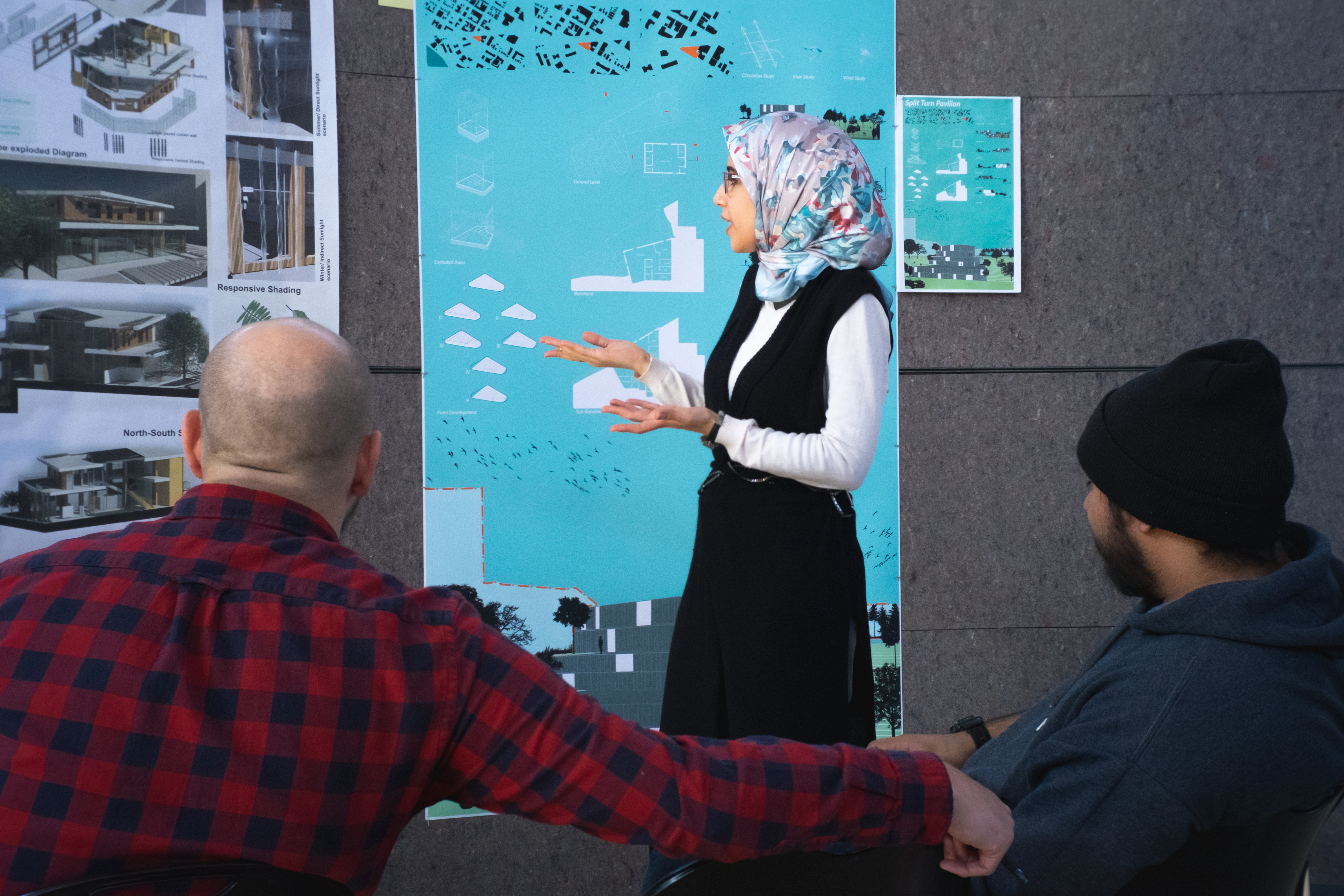
We train our students to pioneer new possibilities in practice, which includes the firms, organizations, industry, and researchers engaged in the creation and ongoing resiliency of built environments. The program leverages the historically strong connection between practice and academy in the Minneapolis / Saint Paul community and beyond. The MS-ARP is customized to our students’ subject area interests and has the following four curricular goals:
Practice-based research through paid internships
You will close the knowledge gap between academia and practice by completing paid research-practice internships with the Consortium for Applied Research in Practice—a group of Twin Cities firms that have practices ranging from local to global work. You may complete 1-2 research-practice internships during the MS-ARP program and will acquire skills in research-based design methods while working with leaders in the Consortium. Should a research-practice internship not be available, the program includes alternate routes to complete this requirement and acquire these skills.
Customized advanced research curriculum
Through the Advanced Research Curriculum series, we encourage you to customize your research to your own particular research interests. You will be trained to identify knowledge gaps, formulate research questions and proposed methodologies to bridge those gaps. You will be advised by experts both in academia and practice, and we encourage our students to connect with the community of professional and academic experts beyond the local area, in your areas of interest.
You will receive multiple opportunities to disseminate your research and present your work in relevant proprietary and public venues and to leaders in the Consortium of Firms. Through the Research-Practice Internship and the Advanced Research Curriculum, our graduates have pursued, developed expertise in and presented work in diverse topics such as:
- Defining processes that ensure equity and diversity in built environments
- Representational friction between designers, engineers, specifiers, generals and subs
- Parametric tools for climate impact analysis
- Preventing waste in design and construction systems
- The inherent tussle between operational and embodied energy
- Local, shared, and circular economy models
This student research has led to publications, presentations, grants, research awards, and intellectual property.
Training for equity in practice
In the MS-ARP program, we equip our graduates with leadership skills relevant to a diverse and equitable future for practice. You will complete assessments such as the Intercultural Development Inventory, participate in follow-up training in order to prepare you to lead equitable pathways for Practice.
Acceleration towards licensure
In order that MS-ARP graduates may assume leadership roles in Practice, the program accelerates their path to licensure. You will take Advanced Pro-Practice classes and receive access to study materials that address the themes and structure of the Architecture Registration Exams (ARE). When you are ready, the program will pay for you to take the ARE, thus shortening the average 12.5 years it takes to become licensed per the National Council of Architectural Registration Boards (NCARB).
Our projects address built-environment challenges through student-led industry and academy partnerships. Key areas of research include climate change, clean water, sustainable ecosystems, just communities, healthcare, future of practice, education, and computation in design.
Master of Science in Architecture: Applied Research in Practice Track Degree Option
Students pursuing this degree track must follow Plan C, which is a course-based option designed for working professionals.
| Plan C |
|---|
|
The MS-ARP program includes faculty members and industry professionals with a wealth of expertise in various architecture specialties.





